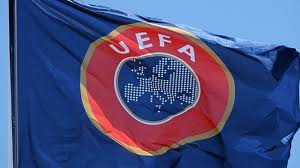By Andrew Warshaw
April 5 – Sweden and the Republic of Ireland were the big winners when their respective federation bosses gained the most votes in being elected today to UEFA’s new-look executive committee.
Swedish FA president Karl-Erik Nilsson and FAI chief executive John Delaney polled 50 and 48 votes respectively from the 55-strong membership as eight new members gained places on Aleksander Ceferin’s top table.
The ExCo election took place at the UEFA Congress in Helsinki with 11 candidates hoping to earn one of the eight available berths – half of the committee’s 16 seats – after it was announced just before the start that Kairat Boranbayev of Kazakhstan had withdrawn his bid.
Also elected were Michele Uva (Italy, 46 votes), Zbigniew Boniek (Poland, 45), Reinhard Grindel (Germany, 44), David Gill (England, 40), Michael van Praag (Netherlands, 36) and Servet Yardımcı (Turkey, 34).
Perhaps reflecting UEFA’s new broom symbolised by Ceferin himself, van Praag, badly beaten by the previously little-known Slovenian in the UEFA presidential election back in September, was again deserted by a good number of federations on his way to clinching re-election to UEFA’s inner circle. Meanwhile Gill, a vice-president of the English FA and former Manchester United CEO, managed only to come in sixth as he, too, sought to cling on for another term.
Those who missed out on an exco place were Armand Duka (Albania, 25 votes), Elkhan Mammadov of Azerbaijan (24) and Kieran O’Connor (Wales, 11).
In addition to the exco spots, elections also took place for European seats on the FIFA council but with two of the candidates dropping out – Russian deputy prime minister Vitaly Mutko and Iceland’s Geir Thorsteinsson – there were only three names in the hat for four four-year positions, which means there will have to be a special second election in Geneva in September.
The three who will join FIFA’s ruling panel through to 2021, voted in by acclamation since their election was a fait accompli, are Sandor Csanyi (Hungary), Dejan Savicevic (Montenegro), and Costakis Koutsokoumnis (Cyprus). Like the seats on UEFA’s exco, they too are for four years except for that of Grindel, the German FA president who serves the rest of Wolfgang Niersbach’s Council term until 2019 after his compatriot was banned from football by FIFA for misconduct related to the 2006 World Cup.
“It is important that German football has a voice in the bodies of world football and can influence future-oriented sport policy issues,” said Grindel whose dual roles at FIFA and UEFA bring Europe’s most powerful federation back into the decision-making fold.
Before the elections, a far-reaching set of governance reforms to come into effect on July 1 was unanimously approved by the UEFA membership.
Future UEFA presidents and senior UEFA officials will be limited to a maximum of three terms and a total of 12 years in the job. Past presidents of the organization had no such restrictions, with former chief Lennart Johansson in charge for a full 17 years.
Exco members must also in future be active in their national federations and hold one of four specific senior titles.
Other changes include granting two member positions on the exco to representatives of the European Club Association (ECA).
“These changes are essential if we are to rebuild our image, restore our credibility and strengthen our legitimacy,” said Ceferin.
“It is difficult to preach when you are not beyond reproach yourself. These changes are therefore not cosmetic touches but an overhaul of our foundations, on which we can build a better future. This is a necessary step towards greater calm and stability in UEFA. ‘Leading by example’ has to be more than just a catch-line. It has to be a clear reality in our organisation.”
Contact the writer of this story at moc.l1744973727labto1744973727ofdlr1744973727owedi1744973727sni@w1744973727ahsra1744973727w.wer1744973727dna1744973727

